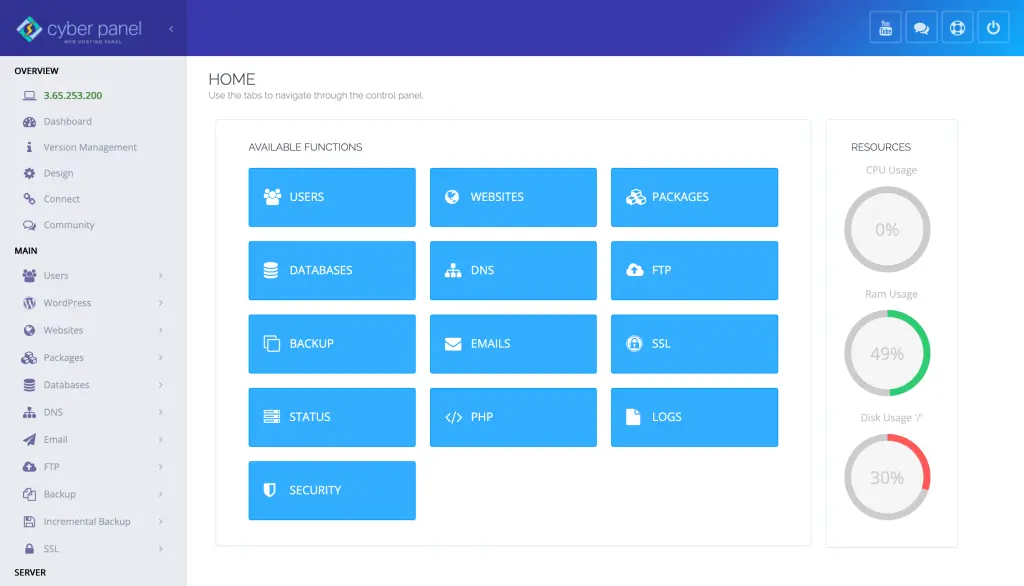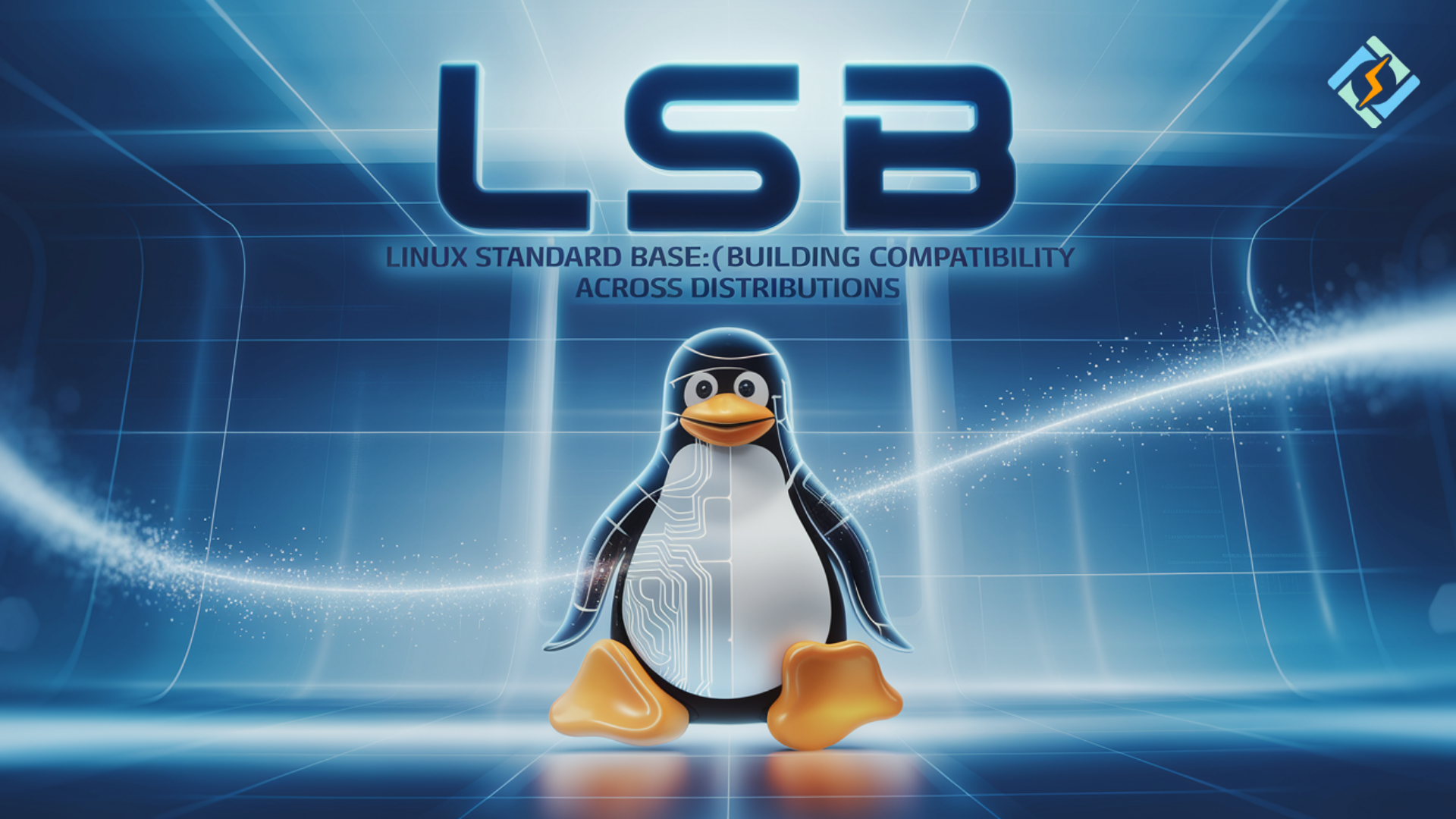Initially, the software may install perfectly well in one Linux distribution, only to fail dismally in another. You are not alone. One of the gnarliest problems that users of Linux would have to face would be distribution inconsistency. What works on Ubuntu might just break on Fedora, and that is exactly the reason the Linux Standard Base was put in place.
Led by the Linux Foundation, the Linux Standard Base is an attempt to standardize the core components of Linux operating systems, so that behaviors across various distributions become predictable. It provides a set of standards that any compliant systems or applications are supposed to adhere to. The net benefit? More interoperability and easier software installation with fewer headaches for the developers.
In this article, therefore, if you have ever wanted to know what the Linux Standard Base is, how it works, and how to download and use it, the concepts will all be broken down easily. We will also examine the Linux Standard Base core specification, working cases, best practices, and the relevance of the Linux Standard Base in today’s containerized and cloud-heavy world.
What is Linux Standard Base?
The Linux Standard Base (LSB) is a cooperative effort toward the attempt to standardize Linux distributions at the binary level. The guarantee that a program for one LSB-compliant system works in the same way on another reduces compatibility problems and serves to ease the way software is developed across distributions.
The LSB specifications include libraries, filesystems, and runtime environments.
What are the LSB Objects?
The Linux Standard Base LSB prescribes the essential APIs, libraries such as glibc, command-line programs, file system layouts, and runtime behaviors required by the compliant Linux distributions. Optional modules are included for graphics, printing, and others.
Get exclusive access to all things tech-savvy, and be the first to receive
the latest updates directly in your inbox.
Table: Core LSB Components
| Component | Purpose |
|---|---|
| glibc | Standard C library functions |
| Filesystem layout | Defines folder structure |
| Command tools | Common POSIX/Linux utilities |
| Runtime behavior | Exit codes, signals, environment |
| Packaging | RPM format, metadata compatibility |
What’s the Linux Standard Base Core Specifications?
Essentially, the LSB Core Spec outlines the ground rules. It says what stuff a Linux system needs to do for it to act like a proper LSB-friendly system. That means making sure the core of the system, shared files, and commands all play nice together in the same way.
This helps programs run smoothly on any Linux version that follows these rules.
Linux Standard Base Download
The easiest way is to just grab the packages from your Linux version’s app store. Use apt, yum, or dnf to grab the LSB stuff. If you need to grab the files yourself, check out the Linux Foundation’s site.
Here’s an example:
sudo apt-get install lsb-core
For RHEL or Fedora:
sudo yum install redhat-lsb
Why Use Linux Standard Base Now?
Even though the LSB isn’t as strict as it used to be, it’s still useful for making sure apps can be moved around easily, especially for older systems or business software meant for different kinds of Linux. Following the LSB rules also helps with testing software and sharing app files.
Now, stuff like Docker makes these problems easier, but LSB is still needed in lots of business situations.
Good Ways to Use Linux Standard Base
- Use Only Approved Libraries: To be super safe, only use libraries listed in the main LSB instructions.
- Use RPM for Files: The LSB says to use RPM for sharing files, so do that for apps that follow LSB rules.
- Double-Check with lsb_release: Always use lsb_release -a to check if a system is following LSB before using it.
- Don’t Use Special Tricks for Specific Linux Versions: The LSB wants to get rid of those by making everything the same.
Common Issues and Solutions with LSB
| Problem | Solution |
|---|---|
lsb_release not found | Install with apt install lsb-release |
| LSB tools not included in distro base | Install lsb-core or redhat-lsb manually |
| RPM packaging errors | Validate .spec files for LSB compliance |
| Obsolete specs on new distros | Use modern equivalents or fallback packages |
Role of CyberPanel

CyberPanel is a web hosting control panel, but it also helps keep things standard in the Linux world. It works with CentOS, AlmaLinux, and Ubuntu, and you can set those up with LSB stuff. If you’re in charge of big business servers, especially for hosting apps, sticking to LSB rules means your setups will be the same no matter where you are. Because CyberPanel works with Docker, Git, and containers, you can still use LSB ideas when you’re in charge of apps that need to work on different Linux systems.
FAQs
What is Linux Standard Base in simple terms?
It’s a set of rules that Linux distributions follow so software can run the same on different versions.

Is LSB still relevant today?
Yes, especially for enterprise applications, testing, and long-term support systems.
How can I check if my Linux system is LSB compliant?
Run lsb_release -a in your terminal.
Wrapping Up!
The Linux Standard Base might not be as big in Linux creation as it wanted to be, but it’s still a good way to measure if something works on different versions. If you’re running business systems or making apps for all kinds of Linux setups, knowing about and using LSB standards can help things go more easily and make putting software out simpler.
Be the Boss of Compatibility – Use LSB Now! Whether you’re making programs or running servers, make sure things go well on all Linux systems by using Linux Standard Base methods. Install, test, and put things out there with certainty.



